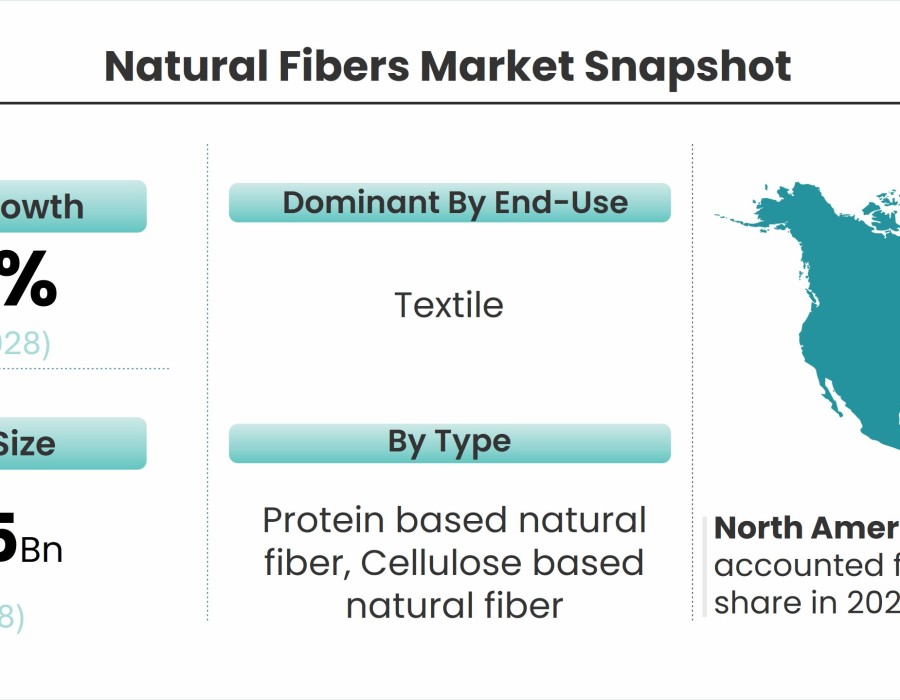The global natural fibers market is undergoing a transformative shift, driven by a strong push toward sustainability. As industries worldwide seek eco-friendly alternatives to synthetic materials, natural fibers are emerging as a leading solution across sectors like textiles, automotive, construction, and packaging. These fibers, derived from plant, animal, and mineral sources, offer not only environmental benefits but also a wide range of applications, making them a key player in the global movement toward a more sustainable future.
According to Stratview Research, the natural fibers market was estimated at USD 4.8 billion in 2022 and is likely to grow at a CAGR of 7.6% during 2023-2028 to reach USD 7.5 billion in 2028.
Sustainability as the Driving Force
Sustainability is the primary trend shaping the global natural fibers market. With growing awareness of the negative environmental impacts of synthetic fibers, particularly those made from petroleum-based products, consumers and businesses alike are seeking greener options. Natural fibers, such as cotton, hemp, jute, wool, and flax, are biodegradable and have a lower carbon footprint compared to synthetic alternatives like polyester or nylon. This shift in consumer preference toward more environmentally friendly products is driving demand for natural fibers in key industries.
Growth in the Textile and Fashion Industry
One of the largest sectors benefiting from the rise of natural fibers is the textile and fashion industry. Consumers are increasingly prioritizing sustainability in their purchasing decisions, choosing clothing made from organic and renewable materials. Fashion brands, in turn, are incorporating natural fibers into their designs, responding to the demand for eco-friendly fashion. Organic cotton, hemp, and bamboo fabrics are gaining traction, offering durability, comfort, and biodegradability. The growth of ethical and sustainable fashion is expected to continue driving the demand for natural fibers in the coming years.
Technological Innovations in Natural Fiber Processing
Technological advancements are also playing a significant role in the growth of the natural fibers market. Innovations in fiber processing and manufacturing are improving the quality, strength, and versatility of natural fibers. New bio-composite materials, which blend natural fibers with other eco-friendly substances, are being developed for use in industries like automotive and construction. These materials offer lightweight, durable alternatives to traditional synthetic composites, providing an added advantage in terms of sustainability.
Expansion into Packaging and Construction
Beyond textiles, natural fibers are gaining traction in packaging and construction. With the rise of eco-conscious consumers, industries are increasingly turning to natural fibers as a sustainable alternative to plastic packaging. In construction, natural fiber-reinforced composites are being used in building materials due to their strength, lightness, and environmentally friendly characteristics. These applications are further expanding the market’s reach and potential.
Conclusion
The global natural fibers market is on a strong upward trajectory, driven by the increasing focus on sustainability. As industries continue to prioritize eco-friendly materials, the demand for natural fibers will grow, especially in textiles, packaging, and construction. With innovations in fiber processing and expanding applications across sectors, natural fibers are set to play a critical role in the global shift toward a more sustainable future.






Comments